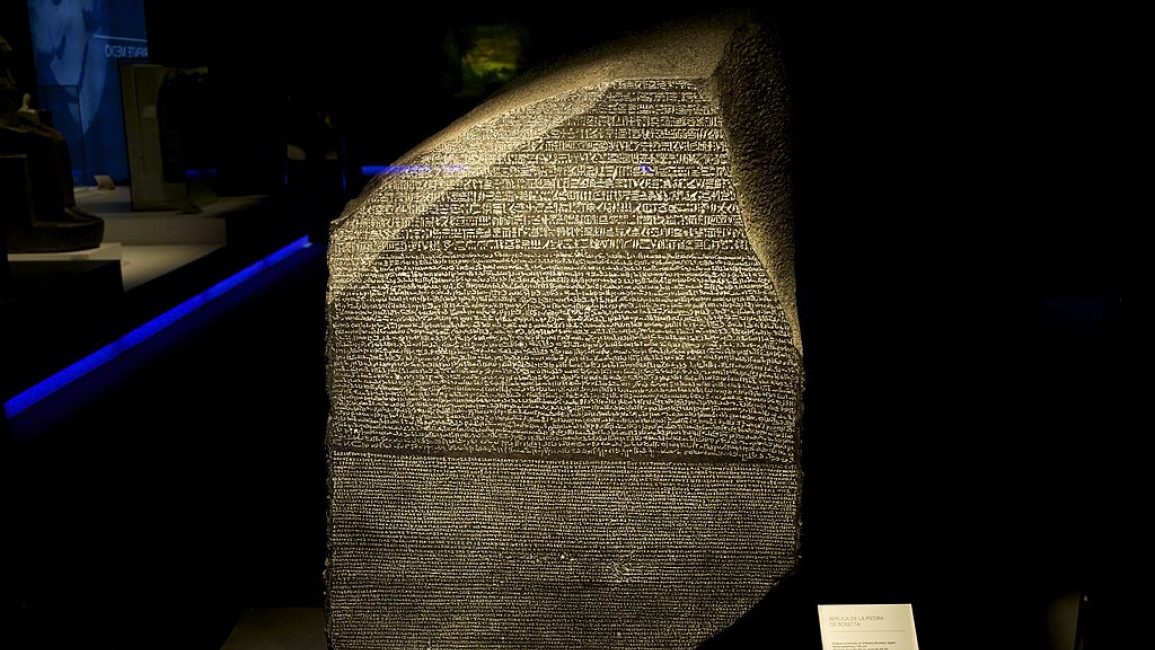Egypt archaeologist calls for return of Rosetta Stone, other artefacts from UK and Europe
An Egyptian archaeologist is spearheading a campaign for iconic Egyptian artefacts to be returned from European museums to their home country.
Zahi Hawass, also former Egyptian antiquities minister, is calling via a petition for the artefacts - including the Rosetta Stone, which has been at the British Museum in London for more than 200 years - to be returned to Egypt.
"The Rosetta Stone is the icon of Egyptian identity," Hawass told The National last week. "The British Museum has no right to show this artefact to the public.”
Hawass is also calling for the bust of Queen Nefertiti in Berlin and a sculpted Zodiac ceiling currently at the Louvre in Paris to be returned to Egypt.
"We collected all the evidence that proves that these three items are stolen from Egypt," he told the UAE-based outlet.
Nawass will reportedly send the petition to European museums in October.
The Rosetta Stone, held at the British Museum since 1802, was acquired from by Britain from French forces during the Napoleonic Wars, following their surrender after a brief French occupation of Egypt.
The 2,200-year-old stone has been key to deciphering ancient Egyptian hieroglyphics.
Hawass, who was antiquities minister until the fall of Egyptian President Hosni Mubarak in 2011, has been campaigning for the return of the stone to Egypt since 2003.
The British Museum said it had not received a formal request for the return of the stone to Egypt, according to The National.
European museums have begun sending some artefacts to their countries of origin as campaigns for their return have grown in recent years.
Hawass has sparked controversy in the past. He was accused of wasting public funds and making illicit gains, but was cleared of the charges by Egypt's top prosecutor in 2014.



